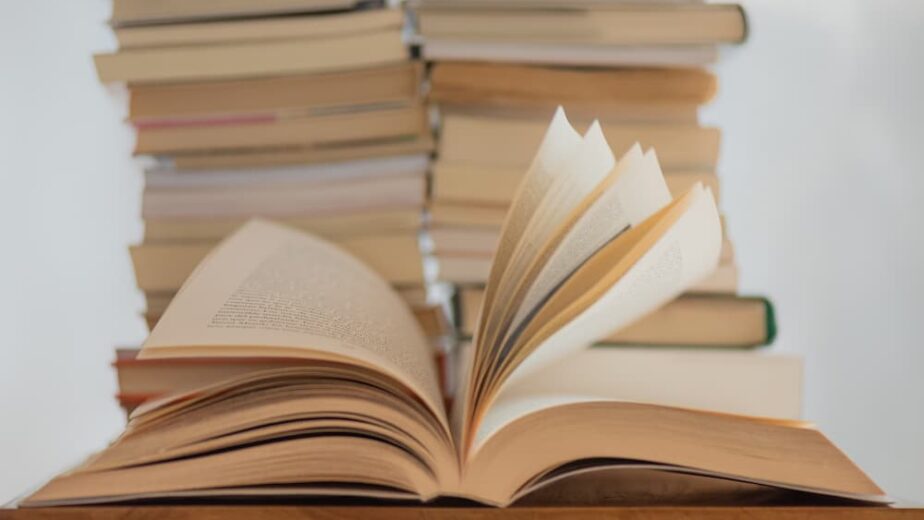The value of literature to society is often overlooked, but it is clear that literature has played a key role in the development of civilization. Literature provides knowledge about history, language, and other cultures through creative works. It shapes people’s opinions by focusing on specific fictional characters or events. Plus, reading literature improves vocabulary acquisition and literacy rates.
The history of literature
Literature creates knowledge about history and other civilizations through creative works that may be nonfiction or fiction. For example, “Beowulf” was an epic poem written by an unknown Anglo-Saxon poet around 700 A.D., only discovered in modern times (Burgess). The narrative describes Scandinavian kings and heroes as well as monsters such as Grendel and its mother (Answers.com). This text allows readers to learn about ancient Scandinavian society. In addition, historical fiction often incorporates real events from the time period being represented as well as other important cultural information. For instance, through literature, readers can gain knowledge of ancient Egypt by reading “The Mummy” by Sir Arthur Conan Doyle. This short story is an adventure narrative describing a fictional expedition in which a dead priest and his cursed servant are unearthed (Doyle).
The opportunities that literature offers
Literature also provides a look into a given culture through creative works that may be nonfiction or fiction. Creative works that are nonfiction include essays, biographies, autobiographies, journals, letters, memoirs, speeches and other forms of writing intended for publication (Burgess). On the other hand, creative works that are fiction include novels, short stories and poems (Burgess). These types of literature provide readers with knowledge of other cultures as well as the differences and similarities between those cultures and their own. For example, Native American tribal myths such as the Iroquois creation myth helped members of a culture learn about one another and themselves. This text is an explanation of how four humans were created by an evil spirit named Gitche Manitou who became too powerful for even himself to destroy (Great Lakes Iroquoian Cosmology). In addition, “Hadji Murad” by Leo Tolstoy provides information on Russian customs through its narrative set during the nineteenth century Caucasus War (Tolstoy).
The first functions that literature performs
Literature shapes people’s opinions by focusing on specific fictional characters or events. For example, the popular novel “The Great Gatsby” by F. Scott Fitzgerald examines wealth and its influence on love through a story of an unnamed protagonist who falls in love with Jay Gatsby (Fitzgerald). In addition, many works of literature do not provide clear-cut answers to problems that they present. Instead, they encourage readers to create their own conclusions about what is right and wrong. Literature can also shape people’s opinion through reading the same books as other individuals and discussing them together such as reading “To Kill a Mockingbird” by Harper Lee (Lee) together as a class or book club. The discussion allows readers to share their thoughts which reveals their own personal views on issues such as racism in the American south (Lee).
The second functions that literature performs
Furthermore, reading literature improves vocabulary acquisition and literacy rates. For example, in the novel “Lolita” by Vladimir Nabokov, the protagonist Humbert Humbert describes Lolita as having “a svelte figure of almost classical purity” (Nabokov). Here, the adjective “classical” refers to ideas of ancient Greece and Rome which are typically associated with beauty (OED). This word allows readers to learn a new word that they can use when discussing the novel. In addition, research has shown that children who regularly read for pleasure have higher achievement in all academic subjects than their peers who do not (The Reading Agency). Furthermore, reading for pleasure has also been proven to delay the onset of dementia in adults (The Reading Agency).
The third functions that literature performs
Literature also improves vocabulary acquisition and literacy rates. For example, children who are read to when they are younger tend to learn new words faster when they enter school than those who were not (Lansing Public Schools, Michigan). In addition, reading literature can improve literacy rates through its use of complex sentences and sophisticated vocabulary that is often used by writers (Burgess). This presents a challenge for readers though which stimulates their brain activity and prompts them to try harder in order to attain success. Overall, literature provides knowledge about history and other civilizations, shapes people’s opinions through characters or events, improves vocabulary acquisition and literacy rates. Plus, it enhances creative writing abilities. In addition, literature can provide readers with experiences they would not have otherwise had which results in a better understanding of the world around them.
How does literature provide knowledge of other cultures?
Lastly, literature can provide people with knowledge of other cultures. This is because characters and events are often based on real ideas or people which readers would otherwise be unfamiliar with. For instance, the protagonist Adam Ewing from “Cloud Atlas” by David Mitchell who travels to many continents during his life provides readers with knowledge about different cultural settings during the nineteenth century. In addition, historical fiction such as “A Thousand Splendid Suns” by Khaled Hosseni allows readers to understand the harsh realities faced by Afghan women through its narrative set in Afghanistan’s recent history (Hosseini).
